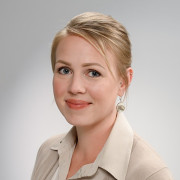The guidance services of the Centre for Continuous Learning assist those studying or planning to study at the Open university or in continuing education, with their study and career-related reflections.
Continuous learning guidance services
Our career and guidance counsellors are at your service in every phase of your open university or continuous learning study path. All guidance services are free of charge. We help you explore various options and find a suitable study path to your needs. You can also receive support from our guidance services if you encounter challenges in your studies or their progress.
If you are a degree student at UEF or are studying with the alumni study right, please see this page where you can find the guidance services available for you.
You can start by exploring the course selection and find studies that interest you: https://www.uef.fi/fi/jatkuvaoppiminen. You can search for courses by keyword or by using the filtering options in the menu. If you have any additional, course-specific questions about the studies, you can find the contact person for each course at the bottom of the course page.
You can contact us by email: [email protected]. Your message will be answered by either a guidance counsellor or specialist in a specific subject, depending on your question. You can also book a personal appointment through the guidance appointment calendar: Bookings – – Outlook. Study guidance is provided via Teams and by phone, and if necessary, in-person on campus.
General tips for planning your studies
In adult learning, it is important to take responsibility for your own progress, set goals, and stay engaged. Being active and committed helps you succeed. Studying often involves working independently, but support is always available when needed. While you have the flexibility to progress at your own pace, it's important to remember that there usually are specific deadlines or suggested timeframes for completing courses or earning credits. At its best, studying can feel meaningful and rewarding but sometimes it can also be challenging. You will continue to develop your study and learning skills during your studies.
The Open University staff are here to support you. If you face any difficulties with studying, don’t hesitate to ask for help — you don’t need to manage everything alone.
As an adult student, your everyday life is often busy with many other responsibilities that take time and energy. With good planning, you can keep your studies on track and make steady progress.
Writing down your goals as concrete, realistic plans helps you turn ideas into action. A personal and written plan also makes it easier to follow your progress and reflect on your learning. It’s helpful to aim for your goals, while also being realistic about what you can manage.
We encourage all students to create a PSP, or a personal study plan. A PSP is a practical tool to help you plan your studies. It can be created in any format that works best for you, for example, using a text document, spreadsheet, or even pen and paper.
The purpose of the PSP is to think about your study goals, create a realistic schedule, and reflect on why you chose these goals. Planning your studies helps you see the bigger picture and, at best, strengthens your commitment and motivation throughout your studies.
When planning your studies, it’s important to consider how much time each course will take.
As a general rule, one credit point equals about 27 hours of work. It’s also a good idea to check the course objectives and the description of how the course is completed. This helps you see if there is anything in the course requirements that should be taken into account already when planning your schedule.
It’s great that you’ve started planning your studies! The study counselors and other staff of the Open University are here to support you with your planning.
Our guidance services and who to contact
- What subject should I choose? How do the alternatives compare?
- How can I study or plan my studies?
- How can I improve my study or language skills?
- Can I study if I'm unemployed?
- Who can support my studies?
- Mapping out career possibilities
- Continuous learning possibilities for those looking for a new career path
- Building your professional competence and work-life skills with the help of open university and continuous learning studies.
- If you've decided on your subject already (be it psychology, biology or computer science), you can ask our specialist and get concrete help on which course is best for you and how to move forward.
- Each course should have a continuous learning specialist (jatkuvan oppimisen asiantuntija) and/or a student affairs secretary (opintoasiainsihteeri) listed. Ask them and they'll explain the landscape around that course for you!
- An open university offers parts of degrees (individual courses, study modules) for anyone interested. You can start your degree-pursuing studies at an open university.
- It is possible to become a degree-pursuing student by completing a number of open university courses with good enough grades. This is called an open university route. Currently we have two routes to English-taught Bachelor’s degree programmes, please see the requirements here.
- If you need help with planning or scheduling your open university route studies, you can contact us.
- We can also give guidance in Russian, if that's easier for you. Contact Irina.
- Консультации о получении финской квалификации или развитии навыков, необходимых в финской трудовой жизни. Консультации возможны также на русском языке. (Irina Tere)









